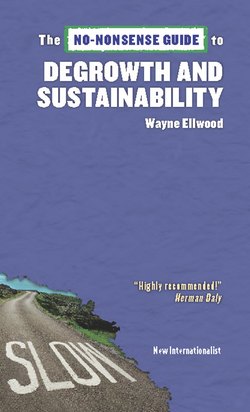Читать книгу The No-Nonsense Guide to Degrowth and Sustainability - Wayne Ellwood - Страница 8
На сайте Литреса книга снята с продажи.
ОглавлениеForeword
In the earliest days of the Industrial Revolution, the classical economists feared that any improvement in living standards above subsistence would be temporary. Economic growth would be a passing phase, succeeded by reversion to a steady-state economy where most people would be poor. Writing in the mid-19th century, John Stuart Mill was the first economist to write positively about the end of economic growth. His commentary on the costs of economic growth expressed well the concerns that occupy a growing number of commentators today. Pressure on the natural world, anomie and alienation, confusion of material gains with real prosperity, the general hustle and bustle of modern life – all were observed by Mill 150 years ago.
Despite the considerable influence on economics of his Principles of Political Economy (1848), Mill’s critique of economic growth was largely ignored, and not just by economists. In the late 1950s this began to change, starting when several quite prominent authors took up where Mill had left off. They offered penetrating analyses of modern economies where all was clearly not well. A number of these contributions, and many which came after, inform the arguments so cogently presented by Wayne Ellwood in The No-Nonsense Guide to Degrowth and Sustainability.
In this short and readable book, Ellwood describes the many ways in which economies are dependent on the environment for energy and material resources, for disposal of all kinds of wastes into the air, water, on and under the land, and for a variety of ‘ecosystem services’ such as pollination and flood control, without which human economies could not function. He explains that economic growth has placed an unsustainable burden on the planet’s resources and life-support systems to meet increasing demands from today’s massively expanded population and economies. Ellwood rejects the argument that the answers to our problems, particularly in the rich countries, lie in yet more economic growth. He points out that all too often, the highly touted gains in efficiency from new technologies are overwhelmed by the increasing scale of economies that grow without limit and make a bad situation worse, not better.
It is rare, but not unknown, for original thinkers to be effective communicators of their ideas to the general public. In today’s world, where institutional divisions distinguish ‘academics’ from people who make their living communicating ideas to the public, those who develop new ideas rely heavily on others to disseminate them. Typically, professors write for their academic peers and their students, leaving it to authors with a flair for communication to disseminate their ideas more broadly. The advent of social media has changed this a little, but it remains generally true that without the determined efforts of writers like Wayne Ellwood, important ideas such as degrowth and sustainability would likely remain on the periphery of public discussion and debate. In light of the seriousness of the economic, environmental and social issues that we face, this would be a serious loss, depriving the public and our governments of frameworks of thought and principles of action needed to guide us through these difficult and challenging times.
Of course, sustainability is not really a new idea. It has been the mantra of farmers and foresters for a very long time. That it should be applied to considerations of the economy is, however, more recent, dating back to the 1980s. Degrowth is even newer, only about 15 years old. Wayne Ellwood explains what these ideas mean and why we should pay attention to them. If you are curious about them, as I hope you are, then do read on.
Peter A Victor PhD, Professor in Environmental Studies, York University, Toronto, Canada
